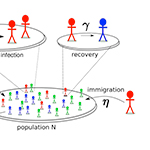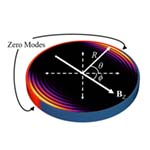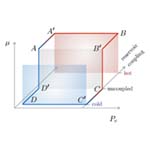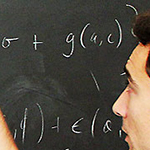
Theoretical physics
We are actively engaged in research across the full range of theoretical physics.
Our theoretical researchers work closely with their experimental colleagues from areas such as particle physics, astrophysics and biological physics.
Many theoretical physics researchers give final-year undergraduate or postgraduate lectures on their speciality, and our setup also facilitates close collaboration between particle and astrophysicists.
We have particular expertise in the following areas:
-
Biological physics
Our research in this area is centred on biointerfaces, surface biocompatibility, controlled release of plasmid DNA and effects of surface chemistries and topology on vascular cell growth and tissue structuring.
Read more
-
Complex systems and statistical physics
Our interests focus on the application of techniques from statistical physics and nonlinear dynamics to study complex systems.
Read more
-
Condensed matter theory
Our research in condensed matter physics is closely linked to the work at the National Graphene Institute which largely concentrates on 2D materials.
Read more
-
Non-equilibrium quantum systems
Our work is on the theory of open quantum systems, with an emphasis on developing new methods applicable beyond standard approximations. Applications range from thermodynamics to solid-state quantum devices and molecular systems.
Read more
-
Particle physics: experiment and theory
Our researchers are active in many areas of physics research, both theoretical and experimental, detector development and e-Science.
Read more
-
Theoretical nuclear physics
Our nuclear experts' work ranges from low-energy nuclear structure to the frontier where nuclear and particle physics overlap. We focus on 'fundamental' approaches to nuclear physics, linking it to quantum chromodynamics, and have particular expertise in the areas of effective field theory and microscopic many-body theory.
Read more








